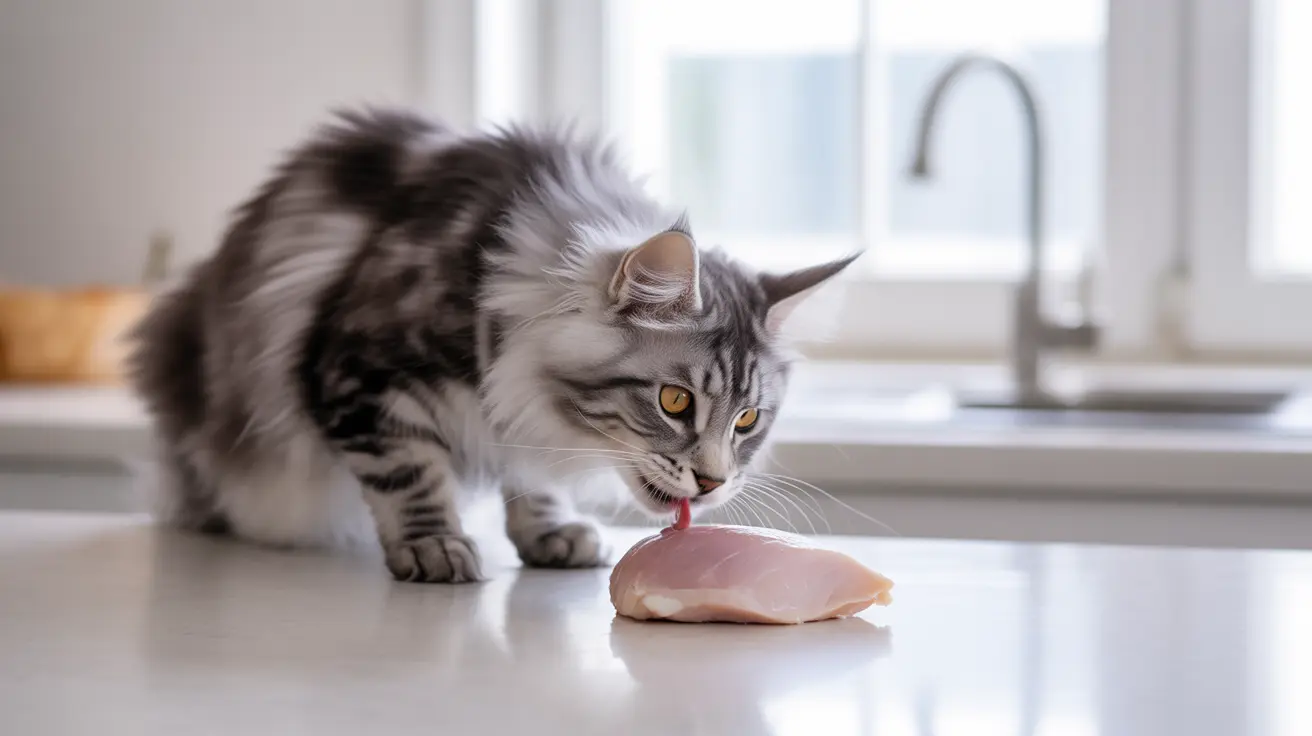While cats are natural carnivores requiring meat-based protein, the question of whether they can safely eat lunch meat requires careful consideration. As a cat owner, it's essential to understand both the potential benefits and risks of feeding deli meats to your feline friend.
In this comprehensive guide, we'll explore the safety considerations, health implications, and best practices for offering lunch meat to cats. We'll also provide expert recommendations on healthier alternatives to ensure your cat's nutritional needs are met safely.
Understanding the Risks of Lunch Meat for Cats
While cats are obligate carnivores requiring animal protein, lunch meat poses several significant health concerns that cat owners should be aware of:
High Sodium Content
Most deli meats contain excessive sodium levels that can be dangerous for cats. High sodium intake can lead to:
- Dehydration
- Kidney strain
- Increased thirst
- Vomiting and diarrhea
- Potential sodium poisoning in severe cases
Harmful Preservatives and Additives
Deli meats typically contain preservatives like sodium nitrate and nitrite, which may cause:
- Cardiovascular issues
- Stress on kidney function
- Potential long-term health complications
Safe Types of Lunch Meat for Cats
If you choose to offer lunch meat to your cat, select varieties that pose minimal risk:
Recommended Options
- Plain, unseasoned turkey breast
- Plain chicken breast
- Low-sodium options without additives
- Fresh-cooked, unseasoned meats
Types to Avoid
- Salami
- Bologna
- Processed ham
- Any meat with seasonings or spices
Best Practices for Feeding Lunch Meat
When offering lunch meat to cats, follow these important guidelines:
Portion Control
Limit portions to tiny amounts, no more than a small bite-sized piece occasionally as a treat. Never make lunch meat a regular part of your cat's diet.
Quality Check
Always inspect the meat for:
- Fresh appearance
- Absence of seasonings
- No visible spices or additives
- Proper refrigeration
Healthier Alternatives to Lunch Meat
Instead of deli meat, consider these safer protein options for your cat:
- Plain cooked chicken
- Boiled turkey breast
- Commercial cat treats
- High-quality wet cat food
Frequently Asked Questions
Can cats safely eat lunch meat or deli meat as an occasional treat?
Yes, cats can safely consume small amounts of plain, unseasoned lunch meat occasionally. However, it should not become a regular part of their diet due to high sodium content and preservatives.
What are the health risks of feeding deli meat regularly to cats?
Regular consumption of deli meat can lead to sodium toxicity, kidney problems, dehydration, and potential complications from preservatives and additives. Long-term exposure may contribute to cardiovascular issues.
Which types of deli meat are safest for cats to eat in small amounts?
Plain, unseasoned turkey or chicken breast are the safest options. Choose low-sodium varieties without added preservatives, seasonings, or artificial ingredients.
Why should I avoid deli meats with onion, garlic, or seasonings for my cat?
Onions and garlic are toxic to cats and can cause serious health problems, including anemia. Other seasonings may cause digestive issues or contain harmful ingredients.
How can I tell if deli meat is too salty or contains harmful preservatives for my cat?
Check the ingredient label for sodium content and preservatives like sodium nitrate or nitrite. If the meat has visible seasonings or a strong processed smell, it's best to avoid feeding it to your cat.
Conclusion
While cats can technically eat lunch meat in small amounts, it's not recommended as a regular treat. The risks associated with high sodium, preservatives, and potential toxic ingredients outweigh any benefits. Instead, focus on providing your cat with nutritionally complete, species-appropriate food and treats designed specifically for felines.






